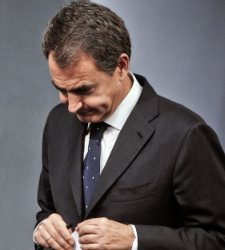
The Spanish risk premium has crushed all records and settled at 335 basis points. At these levels, sales of Spanish national debt are becoming automatic. No fund manager will risk keeping positions and taking losses, such that he would sell first and ask questions later. This context translated into the worst day in history for our debt, with the yields of 10-year bonds superseding 6% interest on the secondary market.
These kind of returns are getting dangerously close to levels at which the extra costs are not prudent and make a bailout look less expensive.
During the peripheral country crisis, all nations that risk premiums of 7% asked for a bailout loan, yet with these kinds of financing the countries get between a rock and a hard place economically. Further, a shortage of business volume during August could leave us vulnerable to market movements. And the thriftier Greek debt options will soon direct other countries to the bank. The contagion is clear.
In these conditions, the following questions are relevant. What if Italy aligns with Spain? Is there capacity to rescue both countries? What should we do? The problem is getting out of control quickly. Italian growth has stagnated.
Traditionally a strong exporter, shipping to foreign country has diminished by 13% since the beginning of the economic crisis. And that problem might bring about debts that equal 120% of Italy?s GDP. Rome has the margins to cut back, privatize, raise taxes and prosecute tax evasion. Still, Berlusconi is finding himself crippled and the meat of his reforms have been postponed in order to wait on elections scheduled for 2013.
Without structural reforms, the Italian government could fall into a vicious circle of stagnations, high debt and austerity plans. The Italian bond market is the third largest in the world (the markets in the United States and Japan are larger). Losses in this market would signify a deathblow for the entire Italian financial system.
Spain is also living beneath an ocean of political uncertainty. Zapatero affirmed that he would stay around to complete reforms. Still, what he has done so far is insufficient. Spanish reform measures have been watered down considerably so that funds are passed backs to the hands from which they came.
Neither financial nor labor sector reforms have been satisfactory. And cutbacks and tax hikes will weigh down improvements to our GDP even more. Looking at socialist candidate Rubalcaba?s proposals, it appears that he is preparing himself to lead a populist opposition. And the expected winner of the next elections, the PP, doesn?t want to be responsible for cutbacks either. Do our politicians think we are fools?
The Spanish and Italian recoveries could crush the euro and bury the global financial system. In the short run, Europe has to develop secondary market sales that lower rates. In the long run, we are heading toward a Eurobond, which means that the treasury and financial ministry would unify. The additional costs for the wealthiest countries in the EU would end up being much worse than they were during the crash. And the reduction of sovereign debt for the peripheral countries would be significantly better than the default.
On the other hand, the PIGS ought to take measures that ensure they can pay shareholders. In Spain, Zapatero is already paying back debts. We need a change in government that is conducive to modern expectations and that could start us off on a path to recovery with more reasonable expenses. The market is looking forward to the upcoming elections. Time does not forgive.